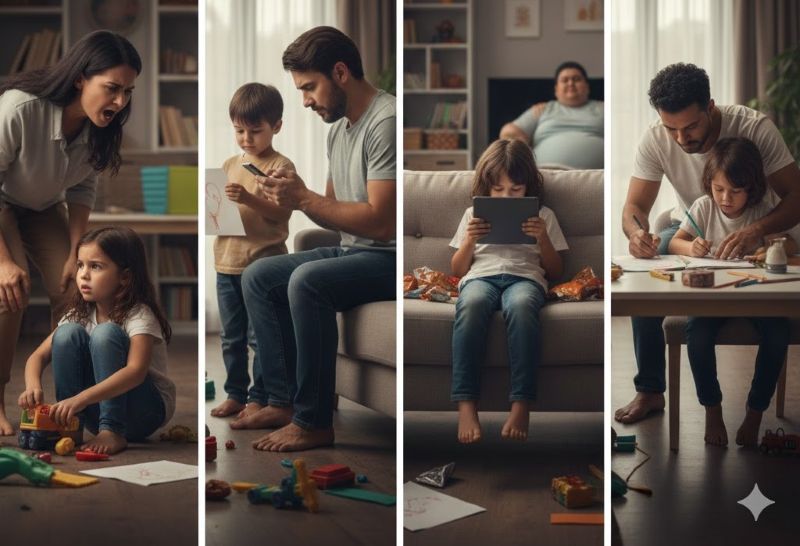
Raising Bilingual Children: Essential Tips for Parents
June 3, 2025
What Every Parent Needs to Know About Technology and Kids
June 7, 2025Why Gratitude Matters More Than Ever
In today’s consumer-driven society, raising children who are grateful rather than entitled can feel like an uphill battle. Ads promise happiness with every purchase, peers flaunt the newest gadgets, and social media sets unrealistic standards of living. As parents, we’re constantly navigating how to help our children develop an appreciation for what they have—without shaming them for wanting more.
Gratitude isn’t just a nice value to instill—it’s linked to better mental health, stronger relationships, and greater life satisfaction. But like any meaningful lesson, it requires intention, consistency, and modeling.
Start with What You Model
Children mirror what they see. If we want our kids to appreciate the little things, we have to do the same. Whether it’s expressing thanks to a cashier, talking about the things you’re grateful for at dinner, or writing a note of appreciation to a friend—your everyday actions become your child’s internal script.
Try this: Make it a habit to say out loud what you’re grateful for, especially in front of your kids. This normalizes thankfulness as part of daily life.
Make Giving a Family Tradition
Incorporating acts of giving into your family culture teaches children that joy isn’t just about getting—it’s also about contributing. This doesn’t have to be extravagant. Whether it’s donating toys, volunteering locally, or baking cookies for a neighbor, the impact is lasting.
Keep it age-appropriate: Younger kids can help pack food donations; older kids can take part in service projects or even help choose a charity to support.
Set Boundaries Around “Wants” vs. “Needs”
One of the simplest ways to cultivate gratitude is by helping kids recognize the difference between needs and wants. This clarity helps them understand that while it’s okay to desire things, their happiness doesn’t depend on material possessions.
Practical tip: When shopping, talk through your decisions: “We’re choosing this because it’s what we need right now,” or “That’s something fun, but we can plan for it later.”
Encourage Experiences Over Things
Research shows that experiences—like trips, shared activities, or even simple family rituals—bring more lasting happiness than material goods. Kids remember how they felt far more than what they had.
What you can do: Plan regular family experiences, even small ones like movie nights, hikes, or game nights. Celebrate birthdays with experiences instead of piles of presents.
Practice Gratitude Daily
Gratitude is like a muscle—it grows with regular exercise. Creating simple routines around it helps kids anchor the habit in their daily lives.
Ideas to try:
-
A gratitude jar where everyone adds a note each day.
-
Bedtime reflections where each family member shares one thing they’re thankful for.
-
A weekly “Thank You” challenge: write or say thank you to someone new.
Limit Media That Fuels Consumerism
Children are constantly bombarded by messages telling them they need more to be happy or accepted. Being mindful of what they’re exposed to—especially through screens—can significantly reduce entitlement.
What helps:
-
Use ad-blockers where possible.
-
Talk about the purpose of ads and how they work.
-
Watch media together and discuss what you see: “Why do you think they made it look so exciting?”
Celebrate Effort and Character, Not Just Results
Rather than rewarding only outcomes or achievements, affirm your child’s kindness, generosity, and effort. This shifts the focus from what they get to who they are becoming.
Say this more often:
-
“I noticed how you shared your toys today. That was really generous.”
-
“Thank you for helping with the groceries. I appreciated your teamwork.”
Final Thoughts: Gratitude Is a Lifelong Journey
Raising grateful kids doesn’t mean they’ll never ask for a new toy or feel disappointed. That’s part of being human. What matters is creating an environment where gratitude is woven into the everyday—through our words, actions, and priorities. In doing so, we’re not just shaping their present—we’re planting seeds for a more grounded, content, and compassionate future.




